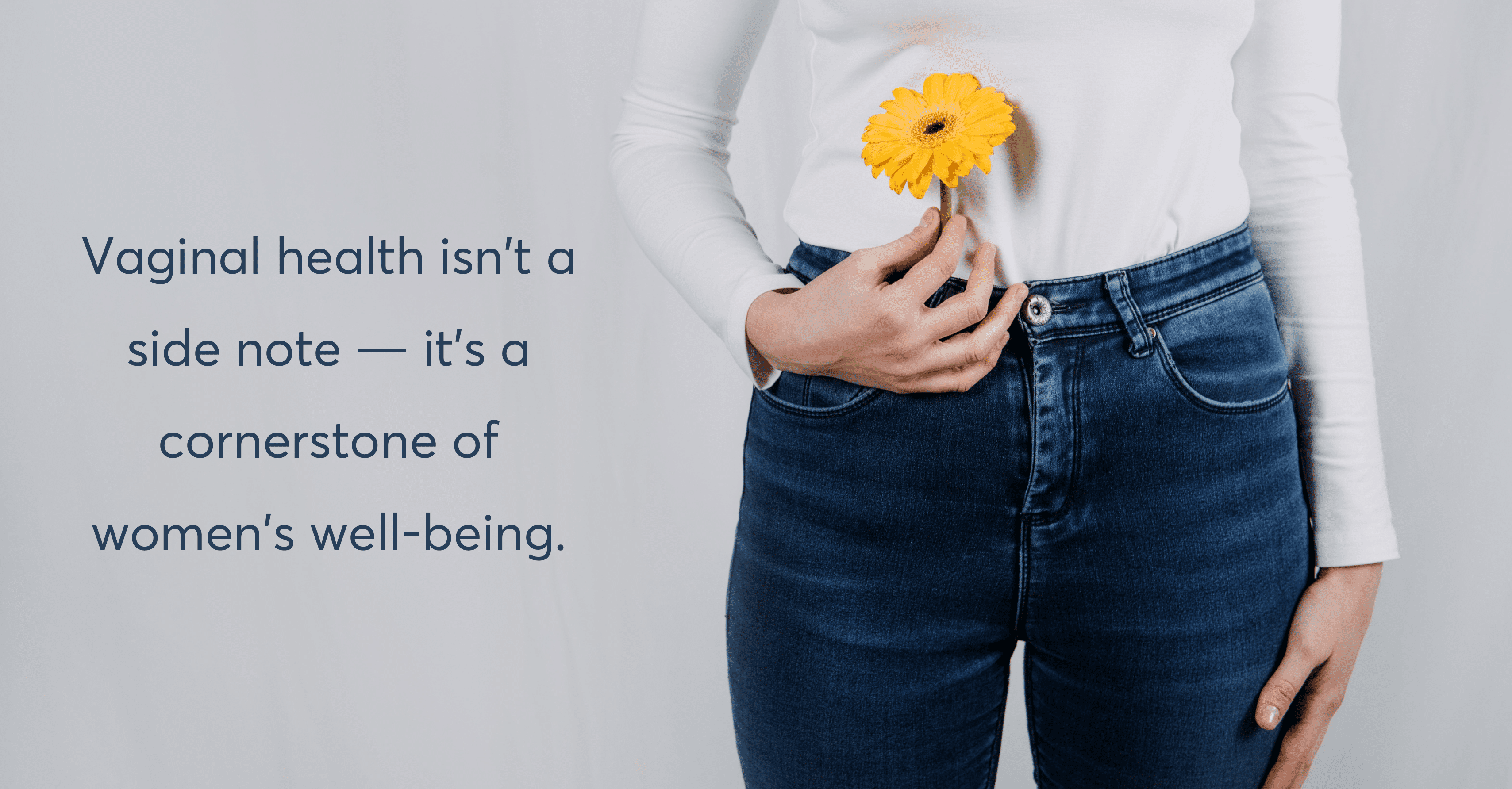
Women’s health is a rich and complex landscape: one that extends far beyond fertility, menstruation, pregnancy, or menopause. Yet, within this intricate system, there exists a remarkable and often overlooked world: the vaginal microbiome.
This invisible ecosystem, made up of bacteria, fungi, and viruses, plays an essential role in safeguarding reproductive health, supporting fertility, and maintaining overall well-being. And yet, despite its significance, it remains largely absent from everyday health conversations.
As a molecular biologist specialising in microbiota and vaginal health, I have spent years studying how these microscopic communities influence our bodies. It is my belief that the time has come to bring this conversation to the forefront, with the clarity, dignity, and scientific understanding that women deserve.
The Vaginal Microbiome: Your Natural Protector
At the heart of vaginal health lies balance. A healthy vaginal microbiome is typically dominated by protective species of Lactobacillus, particularly Lactobacillus crispatus, known for its ability to maintain a low pH environment. This acidic setting is crucial: it prevents the growth of harmful microorganisms, supports fertility, reduces the risk of infections, and fosters a sense of everyday comfort.
However, the vaginal microbiome is not static. It evolves with life’s natural stages: adolescence, pregnancy, contraception use, menopause and is influenced by factors such as sexual activity, antibiotic use, stress, and even diet. When this balance is disturbed, a state known as dysbiosis, it can lead to recurrent infections like bacterial vaginosis, yeast infections, urinary tract infections, or more chronic issues such as inflammation and discomfort.
The importance of this ecosystem cannot be overstated. When in harmony, it provides protection and promotes resilience. When disrupted, it can significantly affect not only reproductive health but also emotional well-being and quality of life.
Shifting the Narrative: Why Vaginal Health Matters
Despite its critical role, vaginal health is still often treated as secondary. Sometimes reduced to mere hygiene advice or confined to uncomfortable conversations, if discussed at all. This silence contributes to misunderstandings and leaves many women feeling isolated in their experiences with recurring discomfort, infections, or fertility challenges.
Scientific research continues to reveal how deeply interconnected our microbial health is with our broader physical and emotional health. Understanding the vaginal microbiome allows us to move beyond symptom management and toward addressing the underlying causes of these issues.
It is not about alarm; it is about awareness.
Harnessing Science: Personalised Insights Through Microbiome Testing
Today, microbiome science offers an unprecedented opportunity: the ability to explore and understand one’s unique vaginal ecosystem through precise and comprehensive testing.
By employing advanced techniques such as Whole Genome Sequencing, vaginal microbiome tests provide a detailed analysis of the bacteria, fungi, and viruses that reside within the vaginal environment. These insights help to identify microbial imbalances and offer guidance toward restoring and maintaining health.
Such testing is particularly valuable for women who:
- Experience recurrent vaginal infections or chronic discomfort
- Face unexplained fertility challenges or repeated miscarriages
- Wish to proactively support their vaginal health at any life stage
- Are navigating hormonal transitions, such as pregnancy or menopause
The ability to access this level of personalised information empowers women to engage in informed discussions with healthcare providers and make decisions that align with their specific needs.
Beyond Treatment
True health is not simply the absence of illness. It is the presence of balance, resilience, and ease. Supporting the vaginal microbiome is not about reactive treatment alone; it is about embracing a preventative, informed, and respectful approach to care.
This perspective invites us to look beyond isolated symptoms and consider the full context of a woman’s life: her hormones, her immune system, her emotional landscape, and her microbial world — as interconnected and worthy of attention.
A Call for Awareness, Not Alarm
The vaginal microbiome is not a subject of shame or discomfort. It is a remarkable ally, quietly working to support reproductive and overall health. By embracing the science that allows us to understand this ecosystem, we offer women the possibility of agency over their bodies and the knowledge to nurture their well-being with confidence.
It is time to give vaginal health the attention it so rightly deserves — not as a niche concern, but as an integral part of women’s health.
Key Takeaways
- The vaginal microbiome is essential for women’s health.
It plays a critical role in preventing infections, supporting fertility, and maintaining comfort and well-being.
- Balance is everything.
Protective Lactobacillus species help maintain a healthy, low pH environment. Disruption of this balance, known as dysbiosis, can lead to recurrent infections, discomfort, and reproductive challenges.
- Life stages and lifestyle influence the microbiome.
Hormonal changes, sexual activity, antibiotic use, stress, and diet all have the power to shift the composition of the vaginal microbiota.
- Microbiome testing offers personalised insight.
Advanced technologies like Whole Genome Sequencing allow for precise analysis of the vaginal ecosystem, identifying imbalances and guiding informed healthcare decisions.
- Vaginal health is not secondary.
Understanding and caring for the vaginal microbiome is a fundamental part of holistic women’s health — not a niche concern, but a core element of well-being.
The BioArte Ltd offers advanced microbiome testing and molecular diagnostics, led by a dedicated team of scientists committed to empowering personalised healthcare through precision science. Visit their website to learn more about their services and innovative research.

Dr Christine Podrini is Lead Researcher at BioArte Ltd. in Malta, where she directs research into the vaginal and skin microbiomes, focusing on how microbial communities influence women’s health. She also serves as a Lecturer at the Institute of Microbiome and Applied Sciences (IMAS) Malta. Before returning to Malta, Dr Christine worked for several years in internationally renowned research centres, including the San Raffaele Scientific Institute in Milan, where she contributed to key discoveries in metabolic and genetic disease. She holds a PhD in epigenetics from the University of London and began her scientific training at the Wellcome Trust Sanger Institute in Cambridge. Her work bridges microbiome science, clinical application, and public health, with a strong commitment to ethical research and education.





